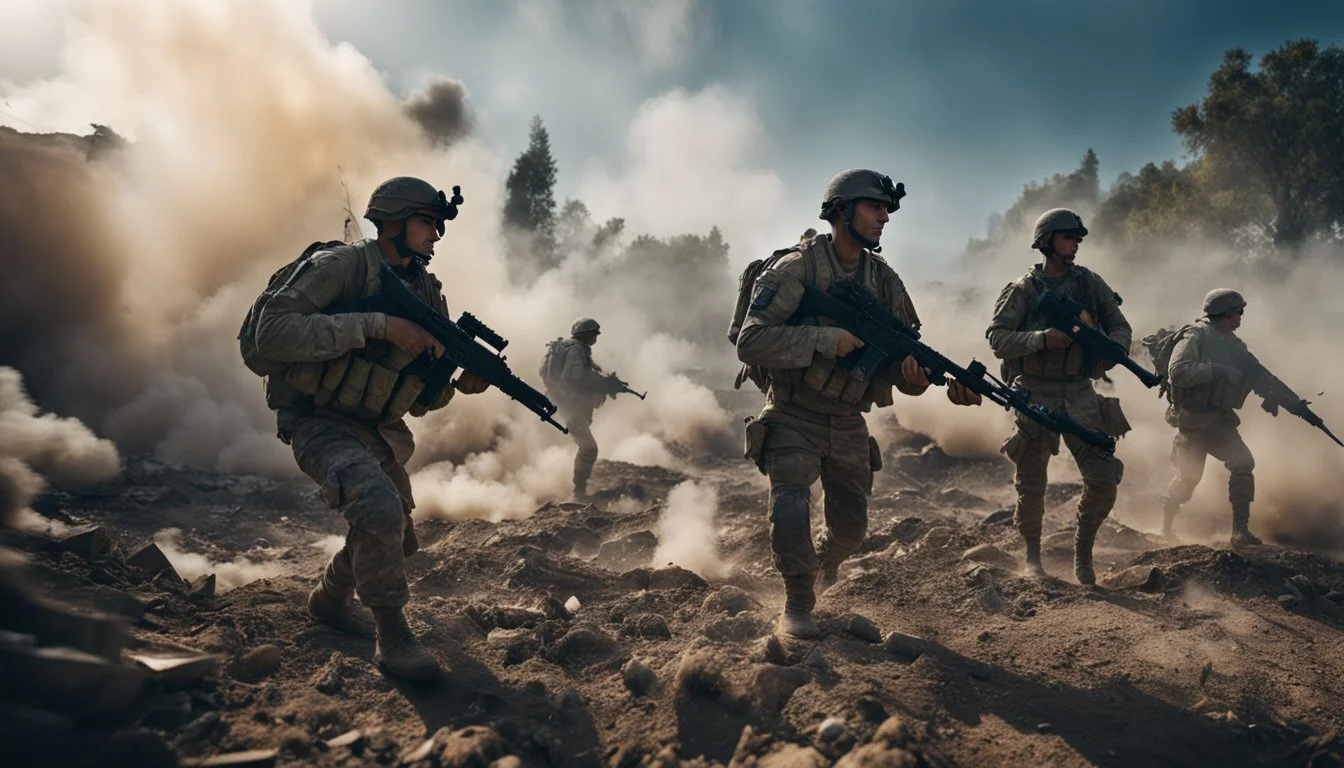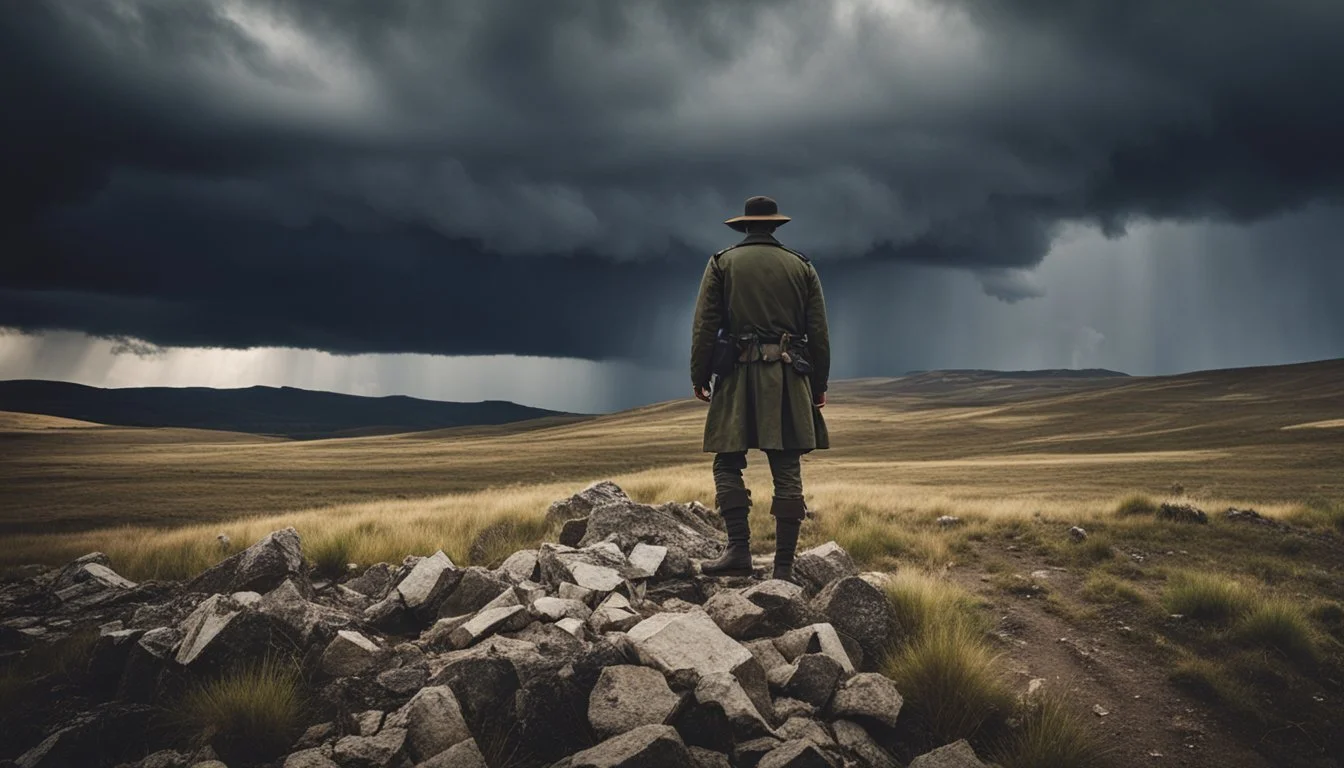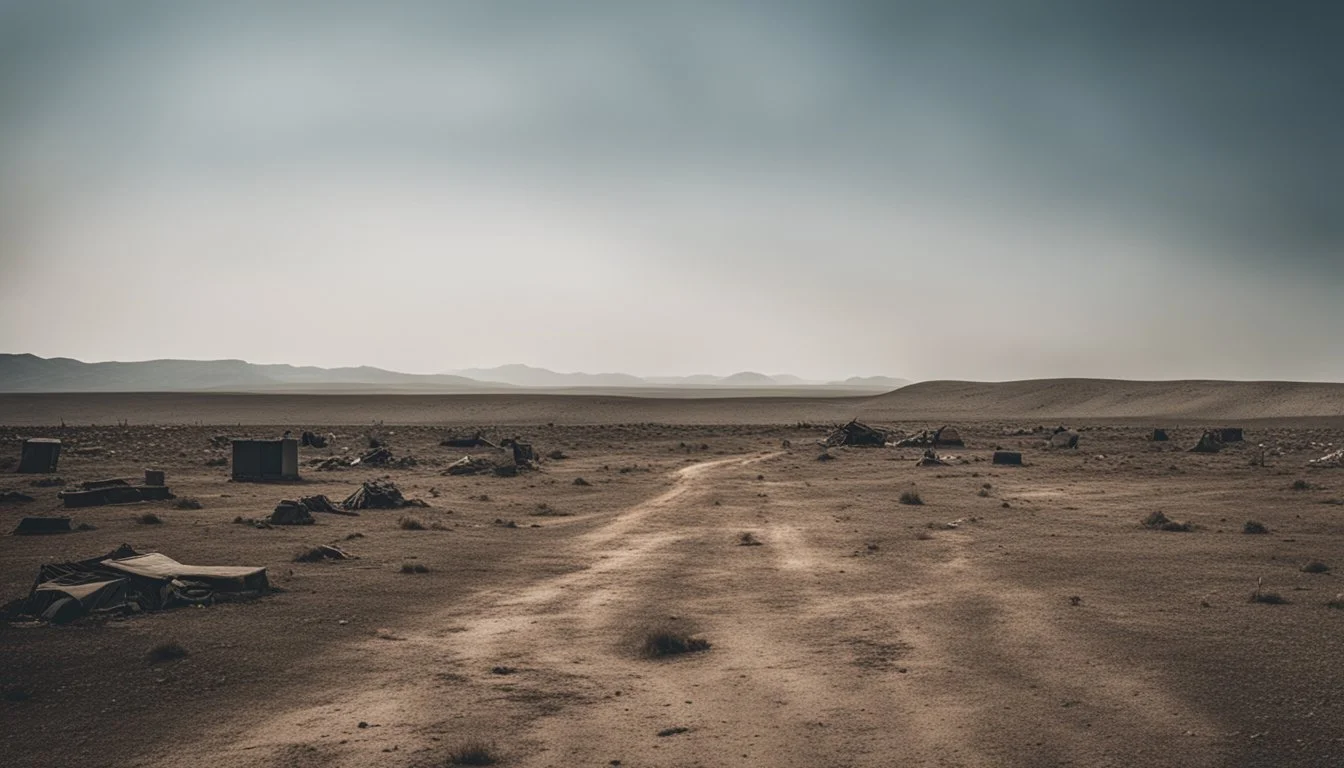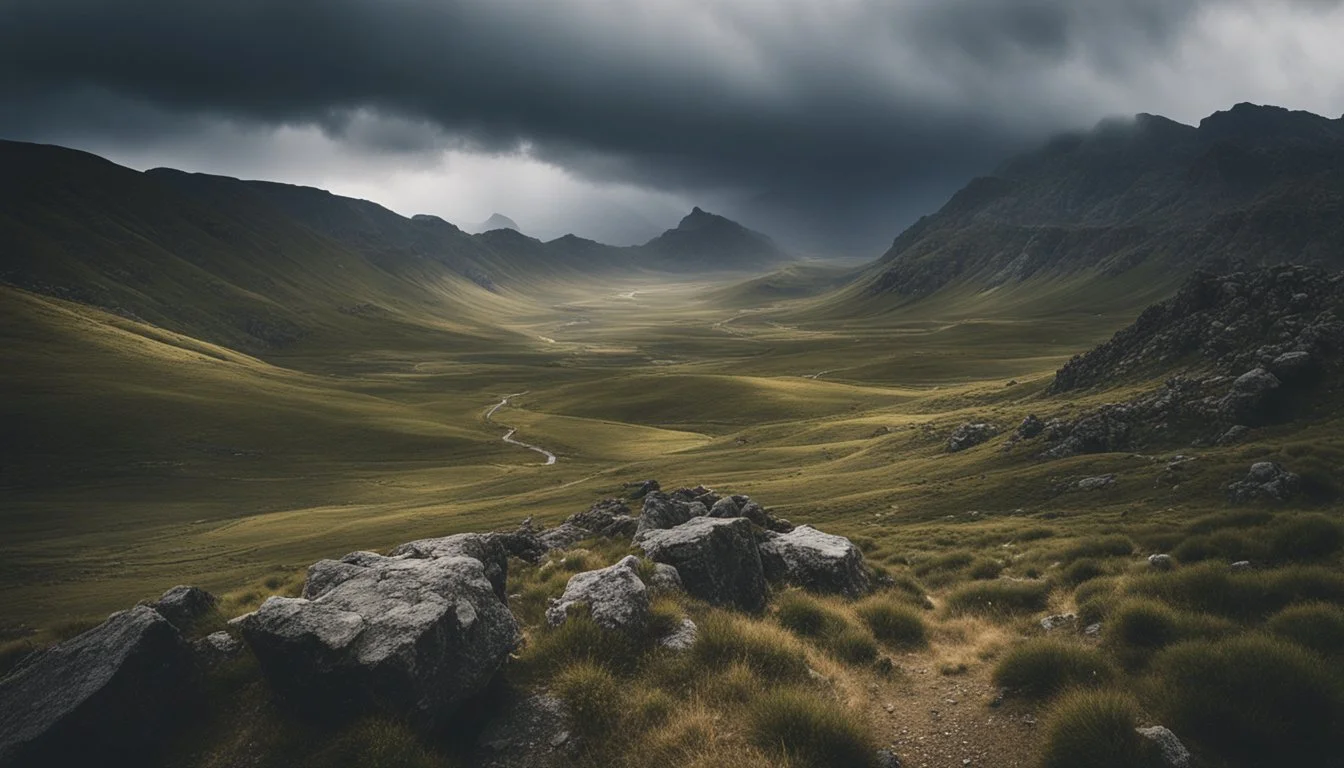Sebastian Junger: Documenting the Trials of War and Survival in Modern Conflicts
Sebastian Junger has carved a niche in the literary world by bringing the stark realities of war and survival to the forefront. His book "War" takes readers through the visceral experiences of soldiers in the Korengal Valley, a pivotal transit corridor for Taliban fighters entering Afghanistan from Pakistan. Junger's detailed narratives not only reflect the honor and fear inherent in combat but also map the intense bonds of trust among soldiers whose lives depend on each other.
Embedded with the second platoon of Battle Company, part of the 173rd Airborne Brigade, Junger and photojournalist Tim Hetherington spent months documenting the day-to-day life and extreme challenges faced by these soldiers. The book delves into their 15-month tour, providing an unfiltered view of the psychological and physical demands of frontline combat.
This profound work has resonated with readers for its raw, empathetic, and unpretentious portrayal of modern warfare. Readers can expect to gain a deep appreciation for the courage and resilience demonstrated by these individuals in one of the world's most perilous environments.
The Life of Sebastian Junger
Sebastian Junger's life is marked by his early years, which shaped his future endeavors, and his distinguished career in journalism and filmmaking.
Early Biography
Sebastian Junger was born on January 17, 1962, in Belmont, Massachusetts. His father, an artist, and his mother, a European immigrant, provided a creative and diverse cultural environment. He attended Concord Academy and later earned a degree in cultural anthropology from Wesleyan University.
His upbringing emphasized creativity and a strong sense of identity. This period fostered his interest in storytelling and human experiences. Developing a passion for adventure and human narratives, Junger's early years laid the groundwork for his later career as a storyteller and documentarian.
Journalism and Filmmaking Career
Junger began his career in journalism writing about dangerous occupations and high-risk situations. His breakthrough came with his 1997 book, "The Perfect Storm", a non-fiction account of the 1991 Perfect Storm that showcased his narrative skill and deep research.
In 2010, he co-directed the documentary film "Restrepo", which was nominated for an Academy Award. The film documented a platoon of U.S. soldiers in Afghanistan, offering an unfiltered look at the realities of war.
Throughout his career, he has maintained a focus on the themes of survival, brotherhood, and the human condition. His works, whether books or films, continue to provide insightful perspectives on the complexities of human life in extreme situations.
Documenting War
Sebastian Junger's work on documenting war focuses heavily on his direct immersion with soldiers and his insights into the nature of conflict. His detailed accounts provide readers with a vivid portrayal of life in combat and the complexities of warfare.
Embedding with Soldiers
Sebastian Junger embedded with a platoon to get a firsthand view of the realities of war. He spent a significant amount of time with the soldiers, observing their daily lives and struggles. His approach allowed him to capture the raw emotions and experiences of the troops.
Junger's immersion provided readers with an unfiltered perspective. He shadowed a single platoon through their 15-month tour, documenting their fears, bonds, and the intense trust that developed among them. This method highlighted the human aspects of war, emphasizing personal stories over strategic analysis.
The close relationships Junger built with the soldiers enabled him to convey their experiences authentically. His empathetic narrative style brings the reader into the soldiers' world, revealing the brutality and brotherhood of combat.
Understanding Conflict
Junger's exploration of war goes beyond the battlefield. He delves into the psychological and social dimensions of conflict. His reportage captures how soldiers cope with the stresses of war, adapt to their environment, and engage with local populations.
He also examines the trust and honor among soldiers, key elements that influence their actions and survival. By focusing on these aspects, Junger provides a broader understanding of warfare, not just as a series of battles but as a complex human endeavor.
Junger's work underscores the impact of war on both the soldiers and the communities in conflict zones. His insights offer a nuanced view of the effects of military engagements, portraying the resilience and challenges faced by those involved.
Explorations of Survival
Sebastian Junger's work meticulously documents how individuals endure extreme hardships and the power of communal support in overcoming traumatic experiences.
Living Through Adversity
Sebastian Junger often focuses on the battle for survival amidst dire circumstances. His book War explores the intense experiences of soldiers in Afghanistan. He lived with and documented a platoon, revealing the brutal reality of combat and the mental strength required to endure it.
In In My Time of Dying, Junger's confrontation with near-death experiences offers personal insights into survival. This work delves into the psychological and physical challenges faced in life-threatening situations. These narratives provide a raw look at the will to survive in the harshest conditions.
Community and Resilience
Junger frequently emphasizes the critical role of community and social bonds in surviving trauma. His TED talks and writings suggest that the sense of unity and shared purpose within a group, such as a military unit, is vital. This communal support creates a buffer against the isolating effects of post-traumatic stress.
His film Restrepo further illustrates how soldiers rely on each other for emotional support during and after combat. This reliance on community helps them to manage stress and build resilience. The loss of this community upon return to civilian life can be a significant source of distress, highlighting the importance of maintaining social connections.
Notable Works by Sebastian Junger
Sebastian Junger has made significant contributions through his books and documentaries, shedding light on the realities of war and survival. His detailed narrations and ability to convey raw human experiences stand out in these works.
Books
The Perfect Storm
Published in 1997, this book is a gripping recount of the 1991 Halloween Nor'easter that engulfed the Andrea Gail, a fishing boat from Gloucester, Massachusetts. Junger intricately details the harrowing ordeal faced by the crew, weaving in meteorological data and personal stories to create a compelling narrative.
War
Released in 2010, "War" is based on Junger's time spent with a platoon in the Korengal Valley, Afghanistan. The book offers an unflinching look at the lives of soldiers in one of the most dangerous combat zones. Junger’s nuanced perspective delves into the psychological and emotional impacts of warfare on the soldiers.
Tribe: On Homecoming and Belonging
In this 2016 book, Junger explores the concept of tribal society and how modern civilization has diverged from this natural state. He argues that the lack of camaraderie and purpose often seen in contemporary life contributes to issues like PTSD among returning veterans, offering insightful socio-cultural analysis.
In My Time of Dying
This memoir shares Junger's near-death experience caused by an aneurysm in 2020, exploring his reflections on life and mortality. The book connects his gripping personal story with broader existential questions, providing a profound and personal examination of human resilience and survival.
Documentaries
Restrepo
Directed by Junger and Tim Hetherington, this 2010 documentary captures the experiences of a U.S. soldier platoon in Afghanistan's Korengal Valley. The film focuses on outpost Restrepo, named after a fallen medic. It offers a visceral look at the lives of these soldiers, highlighting their courage and camaraderie under extreme conditions.
Korengal
Released in 2014, "Korengal" serves as a follow-up to "Restrepo." It aims to provide a deeper understanding of the soldiers' emotional and psychological states after their deployment. Rather than focusing solely on combat, it delves into their personal stories and coping mechanisms, providing a more holistic view of the soldier's experience.
The Last Patrol
In this 2014 documentary, Junger joins three veterans on a journey along U.S. railroads. The film documents their conversations and reflections, addressing themes of brotherhood, sacrifice, and reintegration into civilian life. It’s an intimate look at the struggles and bonds formed through shared experiences of combat.
Junger's works, both on print and screen, offer an unfiltered look at the physical and emotional landscapes shaped by conflict and survival, providing invaluable insights into the human condition.
Themes and Motifs
Sebastian Junger's work often explores essential human experiences such as bravery amidst fear and the strong bonds formed in extreme situations.
Bravery and Fear
In his writings, Junger portrays the intricate dance between bravery and fear experienced by soldiers and civilians in war zones. War Makes You An Animal delves into the personal draw towards conflict despite its perils, reflecting Junger’s own experiences in Afghanistan.
Bravery is not just portrayed through grand acts but in the persistence of individuals under dire circumstances. Fear, on the other hand, is ever-present but often masked by the necessity to act, highlighting a complex psychological state. This juxtaposition offers readers an honest depiction of war’s impact on human resilience.
Camaraderie in Extremes
Junger’s narratives underscore the deep connections forged between individuals facing extreme conditions, both in combat and in survival scenarios. This theme is evident in his book "Tribe: On Homecoming and Belonging," where he examines how shared hardship fosters loyalty and a sense of belonging.
The sense of brotherhood among soldiers, as chronicled in his various works, illustrates how isolation in hostile environments can paradoxically create powerful, supportive communities. These bonds often become a lifeline, demonstrating that camaraderie can be as crucial for survival as physical resilience.
Impact on Society
Sebastian Junger's work reveals the deep societal impacts of war and the role of journalism in uncovering these truths. His insights address both the communal experiences of soldiers and how they relate to broader societal dynamics.
Conversations on War
Junger illustrates that returning veterans often face another form of trauma when they re-enter civilian life. The camaraderie and tight-knit structure of military units form a stark contrast to the alienation many feel in fractured, modern society.
He posits that this divide contributes significantly to the psychological struggles veterans face. Both ex-soldiers and society benefit from recognizing and addressing this cultural and social reintegration challenge.
Influence on Journalism
Junger’s approach in conflict reporting and storytelling has redefined journalistic practices. His works, such as War and Restrepo, emphasize immersive, on-the-ground reporting.
This method provides a raw, unfiltered view of war that contrasts with traditional, distanced reporting. His dedication to authenticity and detail has pushed other journalists to adopt more engaged and empathetic approaches. This shift is crucial in producing honest narratives that resonate deeply with the public and accurately reflect the realities faced by those in conflict zones.





